“Aha!” 12 CEOs and founders tell us about their lightbulb moments

Some people get their ideas while running and others while they’re showering. Others keep notepads by their beds because their breakthrough moments are as they’re falling asleep.
This “aha” moment of “sudden inspiration, revelation, or recognition”, as defined by the Collins English Dictionary is a great feeling, but it’s even better if it leads to a significant financial or social pay-off.
We spoke to 12 successful entrepreneurs and finance leaders about their lightbulb moments.
Adam Theobald, founder at queue-jumping app Ordermentum and Hey You (formerly Beat the Q)
The discovery: That waiting in line is really annoying.

My ‘lightbulb’ moment happened while I was at a Jack Johnson concert, and really hungry. I asked my friends if they wanted a burger, they all agreed and I went to go stand in the queue. It was enormous, almost 40 minutes long! I waited patiently, but growing increasingly hungry and frustrated. When I got to the front, a group of two girls turned into about twenty. I was starting to think I would never get there… then I had an idea; I decided to negotiate my position. I spoke to the girls, and said I was aggrieved at the growing number of their group, but that I would no longer complain.
Also read: 10 skills you won’t need by 2022 – and 10 you will
They huddled, agreed….and let me through. I got to the front of the queue and spontaneously decided to order twenty chicken burgers, not the five that I needed. The guy looked at me strangely, then got excited at one sale / one payment and one customer. I went behind the group of twenty girls, and sold chicken burgers to the people who had been waiting longer than all of them. People looked at me as if I was crazy, then ran at me with money! Moral to this story – everyone was losing here. It was WAY inefficient for both the operator and the people wanting a burger. And given the chance to Beat the Q (now known as Hey You), people ran at it.
James McKinnon, co-founder + co-CEO at baby-sitter service Sittr
The discovery: That finding a reliable and affordable babysitter shouldn’t be so hard.

The idea of Sittr was born in 2014 when my wife and I left Sydney to take our 3 kids (all under 6 years old) on an around the world adventure for 12 months. When we were in Japan, where my youngest daughter took her first steps, we spoke to the hotel about a babysitter so my wife and I could go out to dinner for my birthday.However, after being quoted AUD $400 for three hours babysitting, we ditched the idea of going out for dinner and started working on Sittr with the goal that parents should never be a few taps away from a trusted, reliable and affordable(!) babysitter. We built Sittr together on the road, ready for launch when we returned in 2015.
Dr Silvia Pfeiffer, CEO and Co-Founder at video health consultation provider Coviu
The discovery: That the ability to consult with a medical professional via video could be massive for rural areas.
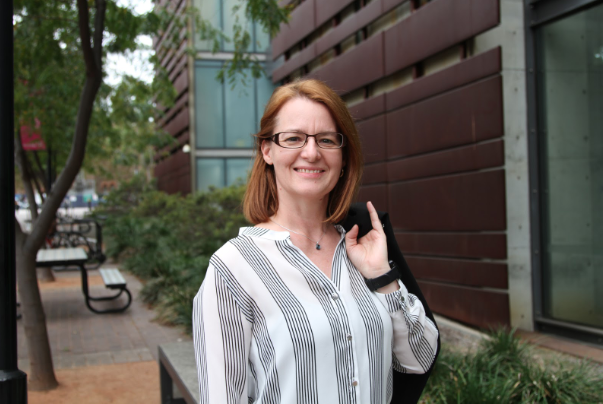
My ‘aha’ moment happened when I came across a little boy in year two who had never spoken a word at school due to medical issues. At the time I was conducting research work at CSIRO with a speech pathology group who were delivering therapy in rural schools.
After a couple of video visits over our trial system the boy suddenly turned to one of his friends on the playground and clapped out their name – something like Ma-ri-a. This came as an utter shock to his friends, the teachers that were watching, and even the parents.
Also read: EXCLUSIVE: This is the most in-demand freelance job in Sydney
It still brings tears to my eyes when I think of how the speech pathologists were able to change this boy’s life! I realised the huge potential impact that a telehealth solution could have on those living in rural areas. This story motivates me every day to make a difference for our customers with Coviu.
Chris Brycki, founder and CEO at Stockspot, Australia’s first digital investment adviser
The discovery: That accessing the stock market doesn’t need to cost a bomb.

My ‘ah ha’ moment for Stockspot was about 20 years in the making. I started trading shares at 10 years old when my dad gave me a $1,000 to invest on the stock market. I researched the companies I wanted to invest in and tracked their progress in the newspaper. Later (to my dismay) Dad told that said $1,000 was only theoretical so my profits were only on paper.
Despite the false start, I’d experienced the taste of a few wins and losses and was hooked. I started investing money I’d saved from birthday presents, pocket money and after school jobs. Armed with a taste for trading I entered and won the ASX School’s Share Game three times between 1999 and 2003 against 40,000 students from around Australia. I eventually went on to be a professional investor for Swiss investment bank UBS.
It was during the global financial crisis that the first light bulb went off for me. I’d seen too many people get burnt from poor investment advice from stockbrokers and financial advisers. I guess I thought there had to be a better way for everyday people to get better advice on how to invest.
Also read: 6 ways to make money while you sleep
The second realisation came from my friends and family asking about how they should invest their savings. Many of them had tried picking shares but failed. Others had paid advisers or fund managers to do it for them but ended up in high risk and unsuitable investments like forestry schemes. My advice was always the same: most people should not be picking shares or paying expensive funds and instead investing in ETFs to get a diversified portfolio, keep your costs low and have the discipline to stay invested, even when markets dip.
I also saw that financial services was ripe for disruption. The timing for an online wealth management business that put clients best interest first was also right: technology had significantly lowered the costs of delivering good advice and managing client portfolios.
Luke Anear, CEO and founder of safety and quality inspection software company, SafetyCulture
The discovery: That finding ways to prevent workplace injuries was better than blowing the whistle on them.
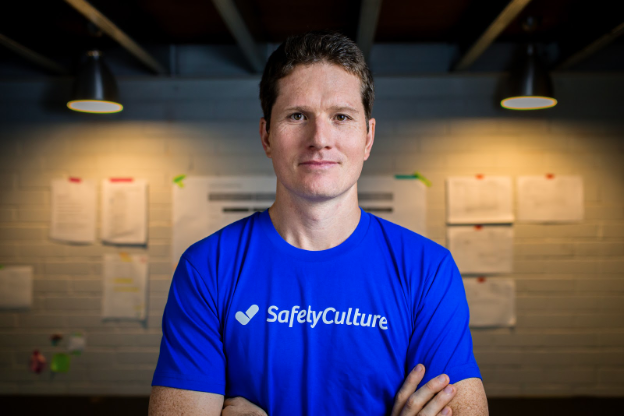
While I was working as a private investigator and spying on people at work waiting for them to be injured, it occurred to me that I was part of the problem. In order for me to do my job, I needed people to get injured at work. I realised I didn’t want to be part of the problem anymore, I want to be part of the solution and that was when the idea for SafetyCulture was born.
From that day on, I started thinking about how to help people avoid being injured at work. Another ‘aha’ moment came to me after we released our first product, iAuditor. Our data revealed that people weren’t using the app for just safety but for quality related things such as how teams could work better together and how they could identify issues of all types in the workplace.
This led us to broaden our products to go well beyond just safety, but include things such as hardware and IOT. They were the two defining moments for SafetyCulture.
Will Richardson, managing partner at Giant Leap Fund, an impact investment fund
The discovery: That working in private equity was making it harder and harder to wake up in the morning.
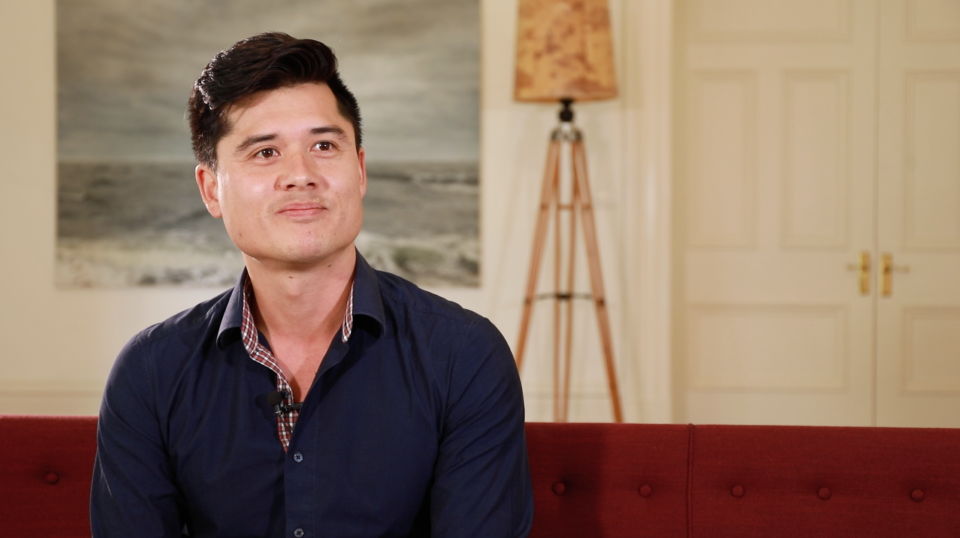
Prior to working at the Impact Investment Group, I worked in private equity. Around five years into my time at [the] private equity firm, I found it harder and harder to wake up in the morning.
I started to go on a bit of a spiritual search. I went to a conference and at that conference I heard a gentleman speak. He really challenged the audience to identify what makes them come alive. The question literally knocked me off my chair. I realised that what I was working on in private equity made me feel the opposite.
That led me on the course to the impact investment group and on the course to create the Giant Leap Fund.
Also read: How this corporate high-flyer left her six-figure job
Giant Leap is Australia’s 100% impact venture capital fund. So we look for businesses that fuse profit and purpose, and we’re looking to back those scalable businesses to drive scalable change in the world.
Mick Spencer, CEO and founder of custom made sportswear business, ONTHEGO
The discovery: That people want custom made sportswear, and they want it fast.
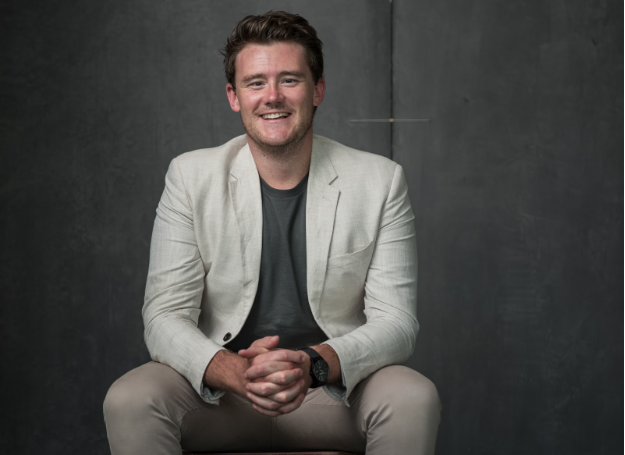
My ‘aha’ moment was after I had just delivered my first ever order of 10 printed tee-shirts to a sports club. While distributing the shirts, someone in the club mentioned they had pre-sold 500 units for a big cycling event but couldn’t find a manufacturer that could deliver custom-made uniforms for the event in less than 14 weeks. Being naive about the manufacturing industry, I said I could do it.
I researched everything there was to know about manufacturing and hustled really hard and delivered 500 custom-made jerseys to the event in just 3 weeks. When I delivered it to the cycling event, I realised if they had this problem, then surely there were others out there with the same problem. The next day, I dropped out of university and took up ONTHEGO full-time. Six years later, I have never looked back.
Jessica Brady, co-founder and financial adviser at Fox & Hare
The discovery: That Australians needed advisers who are just like them.
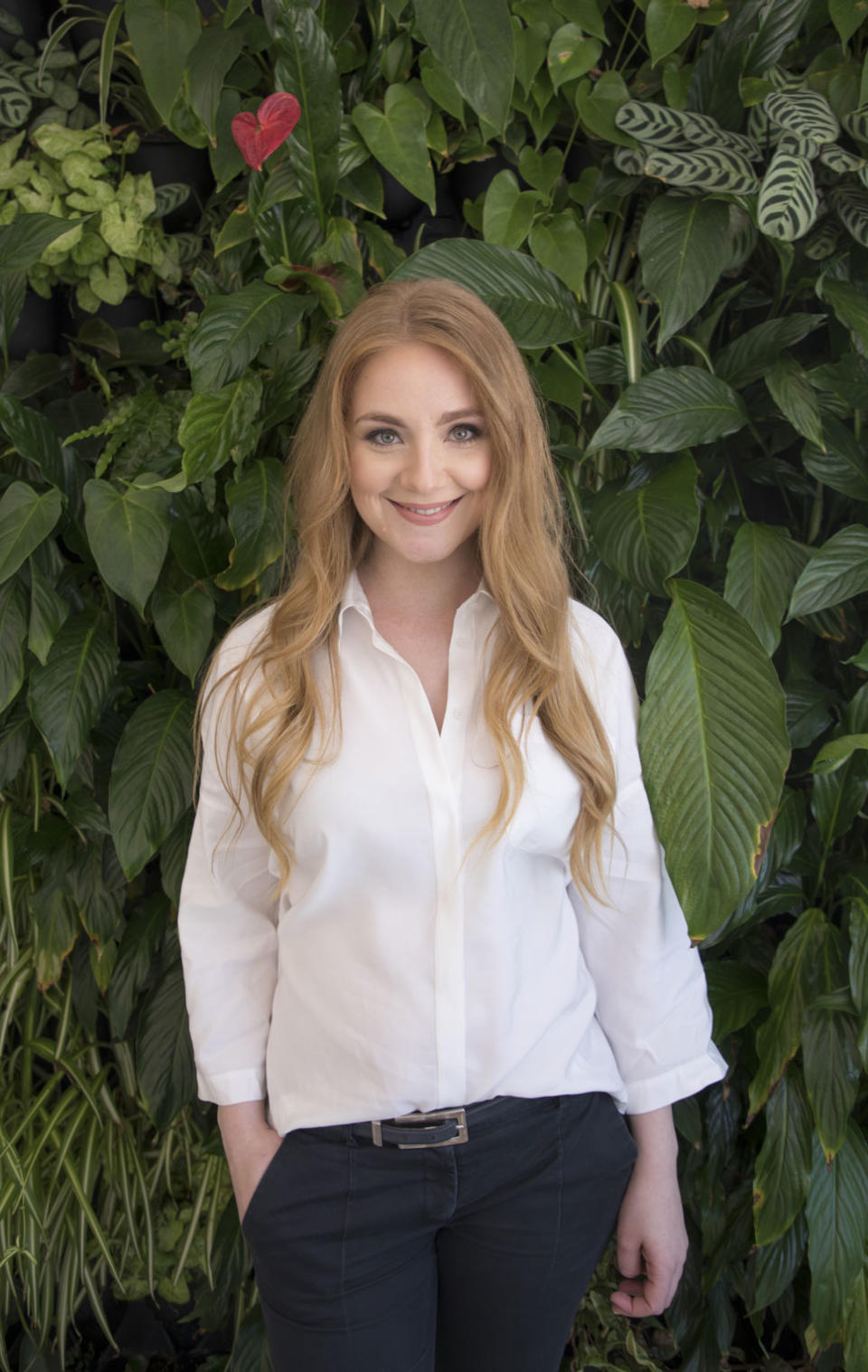
One of my biggest ‘aha’ moments was in my corporate life. My clients being financial advisers, at an industry conference I saw nothing but a sea of grey hair and bald heads. It struck me there was almost no one who looked like me (both from an age perspective & being female) giving advice to people like me. This sent me on a huge journey to finally opening my own business working with people who look like me helping them get their financial world sorted.
Since starting the business, there have been some amazing moments that drive me to jump out of bed in the morning. From the client who came to me in tears having racked up multiple credit cards to now almost being debt free, and for the very first time in her life feeling like she is in control of her money, to helping people get their first home (incredibly rewarding given Sydney has been a notoriously tough market to crack into).
One of my fabulous clients who, after a nasty divorce was so overwhelmed with all the different options, did nothing for almost five years before she met me has now brought an investment property, has a regular investment plan towards her goal of long term passive income and recently accepted a job in NYC!
Shahirah Gardner, co-founder of personal finance and payments app, Finch
The discovery: That combining the financial journey with social elements could help Aussies meet their goals.

We did have an “aha” moment around Finch and that was really centered around what the business model looked like.
A lot of people compare Finch to a Venmo, a Splitwise and a Mint combined and once we did that [combined their attributes], we took the one step further and actually extended that into the rest of their financial journey and considered how can we grow with these customers over time as their financial priorities inevitably change?
When we put this business model together, we realised that this combination of social and financial was quite unique and we believed that to be the key to financial awareness and empowerment in the younger generation.
We thought that this idea had legs and would be globally competitive and interesting.
Al Bentley, founder and CEO of the start-up and investment app, Simply Wall Street
The discovery: That finding information about investments doesn’t need to be performed by a human.
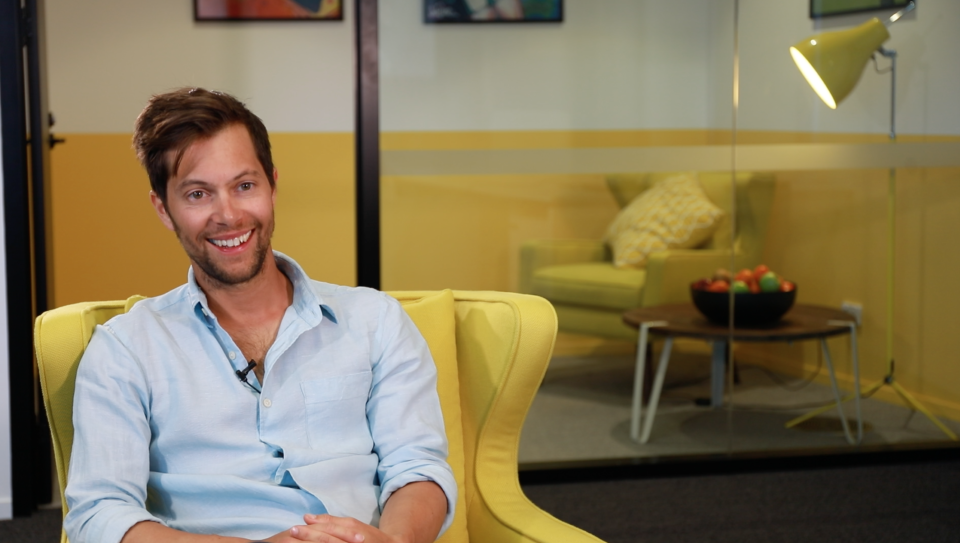
Simply Wall Street is entirely automated and I think my “aha” moment came when I realised that the information that I was searching for on the web, I realised that this didn’t need to be done by a human and that was the “aha” moment, that this was silly, this could be done by software.
I was always obsessed by creating things, so I felt like before Simply Wall Street I had countless projects or websites that I had tried to get off the ground and this never happened and looking back, some of them were totally just silly ideas.
But it was always something I was working on and Simply Wall Street, I got to the stage where I was previously actually a naval architect and quickly realised that I didn’t want to do that for the rest of my life, so I spent about a year and a half actively looking for basically ways to stop doing that and the more I worked on Simply Wall Street, the more I became confident that this was the best use of my time.
Josephine Chow, co-founder of shopping refund app, ShopBack
The discovery: That having a team with the right attitude is critical to success
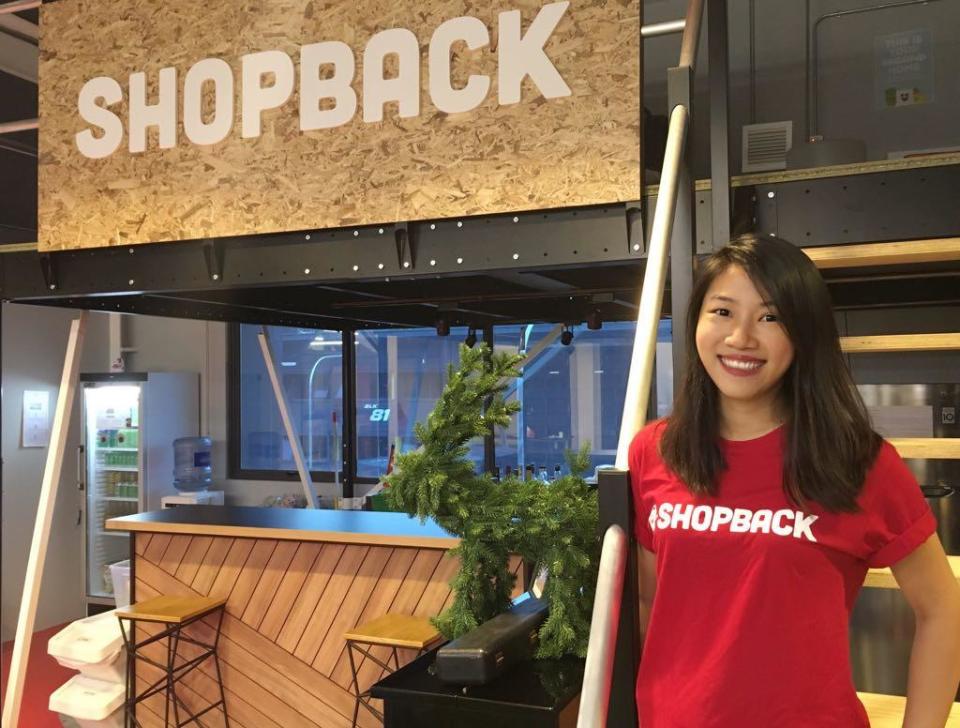
[Our “aha” moment] was in our early days when we confidently applied for government grants to assist in our growth. Unfortunately, we received a letter that straight up told us we’ve been rejected. Instead of brooding over it, our CEO laminated the rejection letter and hung it on our office wall which reminded us everyday that #cantisnotanoption (this is one of our core values today).
Long story short? It was when I realised I’ve been so fortunate to be surrounded by people who were equipped with attitudes required to succeed. Rewarding customers and helping businesses market more cost efficiently is a clear win for our business model. But what truly set us apart is the ShopBackers and our united mission of introducing the world to the smarter way that really fuelled the belief.
Karl Redenbach, CEO of cloud-based intelligent workplace software provider, LiveTiles
The discovery: That businesses needed a way to manage their multiple workplace apps and software.

I’ve been working in tech for nearly 20 years now and ran a consulting services company for a long time. We were helping businesses build modern workplace solutions and we saw there were all these applications that help businesses improve workflow, but no simple way to access or organise them.
We thought that there had to be a better way to do this. We wanted to help businesses control the chaos, collaborate and build solutions that put everything into a single pane of glass. That’s why we created LiveTiles, and this philosophy of ‘making the complex, simple’ is still a big part of what we do as we start working with some of the world’s biggest companies to implement artificial intelligence.
We’ve been growing ever since we founded the business in 2014 and our annualised recurring revenue (ARR) has reflected this growth. The first million is the milestone, you think that you’re not going to get there – it’s like climbing a mountain. But, we’re almost at $20 million in ARR now, which we achieved in just few years. It’s great growth, but importantly we’ve created that base now with a group of amazing people.

 Yahoo Finance
Yahoo Finance 
